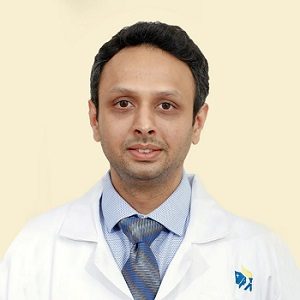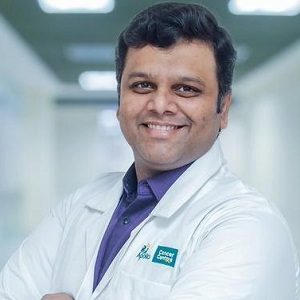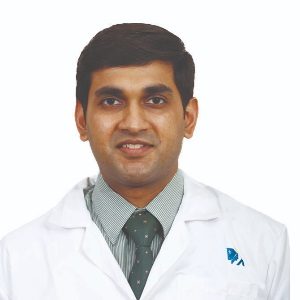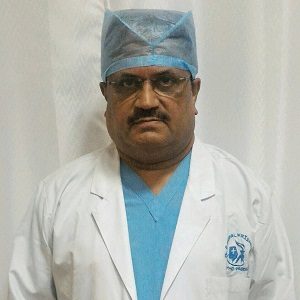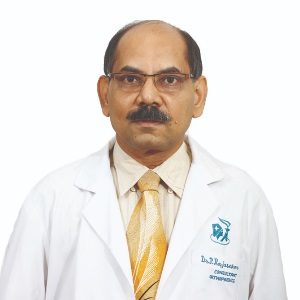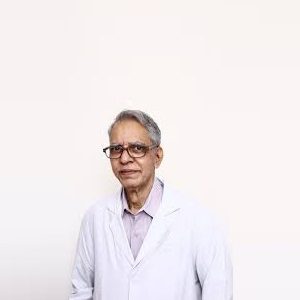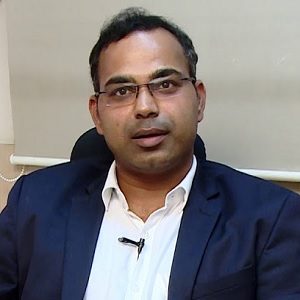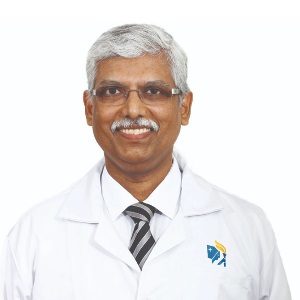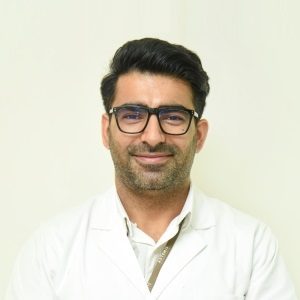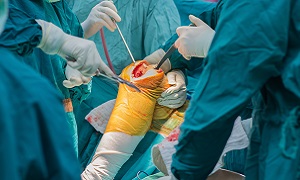Best Doctors in India for Torn Meniscus Treatment
- Orthopedic Surgeon, Chennai, India
- Over 12 years’ experience
Profile Highlights:
- Dr. Kunal Patel consults on Orthopedics related problems at the Apollo hospitals of Chennai.
- He was part of the team which set Limca’s World record of Highest Joint Replacement Surgeries in March 2015.
- Dr. Kunal Patel is well-trained in Asia’s first and only Brainlab Arthroplasty Computer Navigation Orthopedic suite and has completed several fellowships related to his field.
- Orthopedic Surgeon and Spine Surgeon, Chennai, India
- Over 12 years’ experience
Profile Highlights:
- Dr. Madhu Kiran Yarlagadda is an orthopedics – consultant specializing in Joint and spine surgery and works at the Apollo hospitals of Chennai.
- Dr. Madhu Kiran Yarlagadda’s team carried out Robotic Spine Surgery for the first time in South-East Asia and performed Endoscopic Transforaminal Spine Surgery in Chennai.
- He treats spine diseases and has the facilities and expertise to perform robotic spine surgery. Along with that, he treats patients with joint and other orthopedic issues.
- Orthopedic Surgeon, Chennai, India
- Over 16 years’ experience
Profile Highlights:
- Dr. Arun Kannan is a well-known joint replacement surgeon at the Apollo Hospitals, Chennai.
- In his 16 years of experience doing joint surgeries and treating orthopedic issues, Dr. Arun Kannan has worked in the US as well as India and has gained enough trust and recognition from his patients.
- He has been excellent in his academics as well as practice because of which he received prizes and appreciation in both.
- Orthopedic Surgeon, Chennai, India
- Over 40 years’ experience
Profile Highlights:
- An Orthopedic doctor by profile, Dr. Gopala Krishnan has around 40 years of experience in his field.
- After his initial studies in medicine in Chennai, Dr. Gopala Krishnan moved to the US to pursue M.Ch in Orthopedics in 1984.
- His experience and dedication have helped him gain recognition in the field and build trust among patients.
- Orthopedic Surgeon, Chennai, India
- Over 24 years’ experience
Profile Highlights:
- Dr. Rajasekar P is an experienced orthopedist with 24+ years of experience.
- He treats and consults patients with problems with Joints, fractures, osteoporosis, Spine injuries, etc.
- He is an MBBS and DNB qualified doctor and practices at Apollo hospitals of Chennai.
- Orthopedic Surgeon, Chennai, India
- Over 50 years’ experience
Profile Highlights:
- Dr. Uma Chandran S specializes in orthopedics and is a veteran surgeon at Apollo Hospitals of Chennai.
- He has spent more than 50 years in the field of orthopedics and is believed to be one of the best orthopedists in Chennai.
- He is also known for his expertise in bone replacement surgery, spine movement, fracture treatment, etc.
- Spine Surgeon and Orthopaedic Surgeon, Chennai, India
- Over 18 years’ experience
Profile Highlights:
- Dr. Muralidharan Venkatesan is a consultant in spine surgery from Chennai.
- He provides comprehensive cervical (neck), thoracic (upper back), and lumbosacral (lower back) conditions treatment.
- Dr. Venkatesan pursued MBBS, MRCS, and a fellowship FRCS and shifted his specialization to spinal surgery.
- Dr. Venkatesan has his papers published in several journals.
- Orthopedic Surgeon and Spine Surgeon, Chennai, India
- Over 23 years’ experience
Profile Highlights:
- Dr. Ravi Venkatesan is a spine surgery specialist from Chennai, Tamil Nadu.
- His experience in spine surgery, orthopedics, and spine deformity surgery date back nearly 23 years.
- Dr. Venkatesan has performed several surgeries and has been an active member of various orthopedics groups.
- Many organizations have recognized his service and have awarded him for his dedication.
- Orthopedic Surgeon, Gurugram, India
- Over 10 years’ experience
Profile Highlights:
- Irfan Banday is a brilliant young orthopedic surgeon with over 10 years of experience handling trauma surgeries and ortho problems.
- Irfan received Fellowship in Knee Arthroscopy and Arthroplasty and Shoulder and Upper Limb Arthroscopy, Arthroplasty & Reconstructive Surgery.
- He manages simple & complex fractures, Reconstructive Surgeries of the Knee, Shoulder, Upper limb, and complex tendon transfers.
- Orthopedic Surgeon, Gurugram, India
- Over 18 years’ experience
Profile Highlights:
- Sandeep Chauhan is one of the best orthopedic surgeons and an expert in managing complex fractures, even in children, soft tissue injuries, septic arthritis, and osteomyelitis.
- He performs fracture reconstructions; and arthroplasty procedures like surface replacements, cemented and un-cemented THR, Total Knee Replacement, musculoskeletal infections, UKA knee, hip, shoulder, & elbow replacements.
Best Hospitals in India for Torn Meniscus Treatment
Torn Meniscus
Torn meniscus is a common knee injury, which can be caused by any activity that can cause you to twist or rotate your knee forcefully, especially when you put full weight on it.
Sometimes treatment such as rest, ice, and medication, is enough to relieve the pain of a torn meniscus and give the injury time for self-healing. However, in some cases, surgical repair might be required in cases of a torn meniscus.
Symptoms
In some cases, meniscal tears might not cause any symptoms or problems. However, like any injury, there is an inflammatory response, which can include pain and swelling. The swelling within the knee joint from a torn meniscus generally takes a few hours to develop and depending upon the amount of pain, and fluid accumulation, sometimes it becomes difficult to move the knee. When fluid accumulates within the enclosed area of your knee joint, fully extending or straightening the knee also becomes quite painful and difficult.
In certain situations, the amount of swelling is not enough for you or anyone to notice. Sometimes you might not be aware of the initial injury, but you might start noting symptoms that develop later. There may or may not be an acute injury. The knee cartilage might become damaged due to a consequence of aging, arthritis, and wearing away of the meniscus causing a degenerative meniscal tear.
The knee joint irritation might settle down gradually, after an injury, and feel relatively normal as the initial inflammatory response resolves. Still, there is a likeliness that other symptoms might also develop over time, which might include any or all of the following:
- Pain with walking or running too long
- Intermittent swelling of the knee joint might also occur. Multiple times, the knee with a torn meniscus can feel “tight.”
- Popping, especially when one is climbing up or downstairs
- You might also experience a mechanical block where the knee cannot be fully extended or straightened. This occurs when a piece of torn meniscus folds on itself, thus blocking the full range of motion of your knee joint. Therefore, your knee can get stuck, and unable to bend or straighten from a position.
- You may experience the sensation that the knee is unstable and the feeling that the knee will give way.
Causes & risk factors
Any activity that can cause you to twist or rotate your knee forcefully, can result in a torn meniscus. Aggressive pivoting, kneeling, sudden stops and turns, deep squatting, or lifting something heavy might cause a torn meniscus.
In older people, degenerative changes in the knee can also lead to a torn meniscus but cause little or no trauma.
The risk of having a torn meniscus is high among athletes, particularly those who take part in contact sports, like football, tennis, or basketball.
As you age, it leads to the wear and tears on your knees increasing. Obesity does the same.
Diagnosis
Generally, a torn meniscus is identified during a physical exam. Your doctor may move your knee and leg into different positions, after which he/she will be watching you walk and may also ask you to squat in order to help pinpoint the cause of your signs and symptoms.
He/she might also require tests such as:
X-rays
Since a torn meniscus is made of cartilage, it will not show up on any X-rays. However, X-rays can help in ruling out other problems with the knee that can cause similar kinds of symptoms.
MRI
This technique uses radio waves as well as a strong magnetic field for producing detailed images of both hard and soft tissues, within the knee. It is the best imaging study for detecting a torn meniscus.
Arthroscopy
Sometimes, your doctor might also use an instrument which is known as an arthroscope, which can be inserted through a tiny incision in your knee.
This device has a light and a small camera, which can transmit an enlarged image of the insides of your knee onto a monitor. Surgical instruments can also be inserted through it, if necessary, or through additional small incisions in your knee for repairing the tear.
Treatment
Therapy
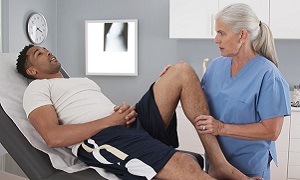
Surgery
Your doctor might be recommending surgery, if your knee remains painful despite any rehabilitative therapy, or if the knee locks. It is sometimes possible to repair a torn meniscus as well, especially in children as well as young adults.
If your tear is not repairable, your doctor might choose to trim the meniscus surgically, possibly through tiny incisions using an arthroscope. After the surgery, you will need to do a few exercises in order to increase and maintain the strength and stability of your knee.
If you are suffering from advanced, degenerative arthritis, your doctor might be recommending a knee replacement.

